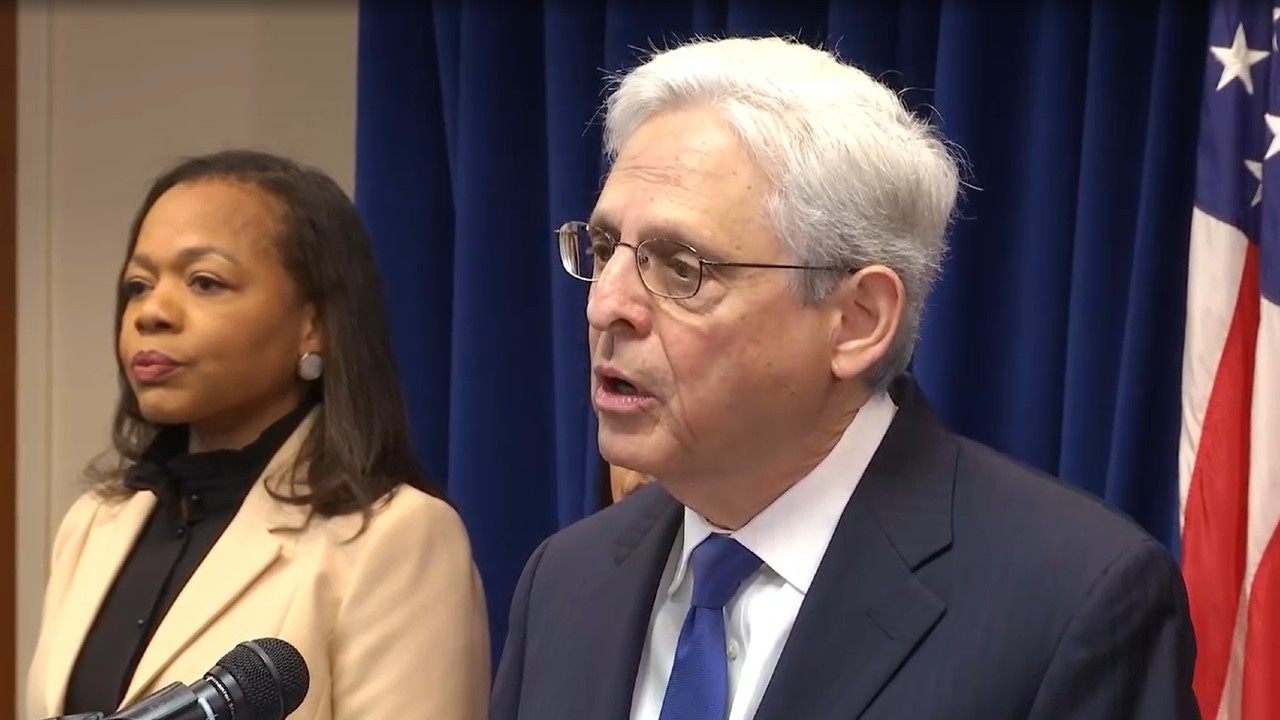DOJ: Minneapolis, city’s police department violated constitutional rights
U.S. Attorney General Merrick Garland announced Friday morning that the Department of Justice has reason to believe that both the City of Minneapolis and the city’s police department have “engaged in a pattern or practice of conduct that violates the first and fourth amendment of the United States Constitution.”
Garland added they also have reason to believe there have been violations of not only Title 6 of the Civil Rights Act, but also the Safe Streets Act and the Americans with Disabilities Act.
Title 6 prohibits the discrimination of race, color and national origin in programs and activities which receive financial assistance from the federal government. CLICK HERE to learn more about Title 6.
The two-year-long pattern and practice investigation also found that both Minneapolis police and the city discriminated against people with “behavioral health disabilities” when officers are called for help.
In addition, an agreement has been made to begin negotiating terms of a consent decree between the city, the police department and the federal department. A total of 28 remedial measures are being recommended by the Department of Justice.

Consent decrees require agencies to meet specific goals before federal oversight is removed, a process that often takes many years at a cost of millions of dollars.
“For years, MPD used dangerous techniques and weapons against people who committed at most a petty offense and sometimes no offense at all,” the report said. Police “used force to punish people who made officers angry or criticized the police.”
Officers “patrolled neighborhoods differently based on their racial composition and discriminated based on race when searching, handcuffing, or using force against people during stops,” the report added.
The report found that the city sent officers to behavioral health-related 911 calls, “even when a law enforcement response was not appropriate or necessary, sometimes with tragic results. These actions put MPD officers and the Minneapolis community at risk.”
During Friday’s news conference, Garland listed off multiple examples of misconduct, which he says violated the two Constitutional amendments. He added some officers within the department used excessive force, often when no force is necessary.
The findings were based on reviews of documents and incident files; observation of body-worn camera videos; data provided by the city and police; and ride-alongs and conversations with officers, residents and others, the report says.
“These findings are a major step in reforming this department into one that provides a level of service that will be a model for law enforcement agencies across the country. Moving forward, we will continue the process of changing the culture of the Minneapolis Police Department to ensure the safety and wellness of our police officers and the residents of this city. And paramount to this is the rebuilding of trust between this department and the people it serves,” said Minneapolis Police Chief Brian O’Hara in a prepared statement.
Following the report from the DOJ, the Police Officers Federation of Minneapolis released the following statement:
Investigators also found the department searches, stops and uses force six times more against Black and Native American people than White people.
Federal investigators acknowledged Friday that the city and Minneapolis police have already begun reforms.
“These findings we are embracing today are a clear and public demonstration of the recommendations we created when I served on President Obama’s Task Force on 21st Century Policing. This process is one of the vehicles that will help our City build relationships as we create and implement policy and systems change. We are committed to transforming Minneapolis into one of the safest cities in America for everyone who lives in or visits our city,” said Community Safety Commissioner Cedric Alexander. “Our job is to make sure our community safety teams fully embrace the best practices that can reduce crime and build public trust.”
The DOJ’s investigation was launched after the murder of George Floyd to determine if the police department engages in a pattern of discriminatory policing and excessive force. 5 INVESTIGATES previously revealed a pattern of misconduct inside the department in which officers falsified police reports, omitted key details, or failed to report their use of force altogether.
RELATED: Minneapolis Police will be under court supervision for years. DOJ may be watching for a decade. | Minneapolis has now paid more than $35 million because of Derek Chauvin’s excessive force | JUSTIFYING THE FORCE: Testimony reveals Chauvin omitted key detail in Floyd’s arrest
The report noted that police are now prohibited from using neck restraints like the one former Minneapolis police officer Derek Chauvin used in killing Floyd. Officers are no longer allowed to use some crowd control weapons without permission from the chief. And “no-knock” warrants were banned after the 2022 death of Amir Locke.
The city also has launched a “promising” behavioral health response program in which trained mental health professionals respond to some calls rather than police.
In addition, the investigation found that Minneapolis officers used excessive force, including “unjustified deadly force,” and violated the rights of people engaged in constitutionally protected speech.
READ THE FULL REPORT HERE:
Friday’s full news conference can be watched in the video player below.
[anvplayer video=”5181621″ station=”998122″]
The Associated Press contributed to this report.